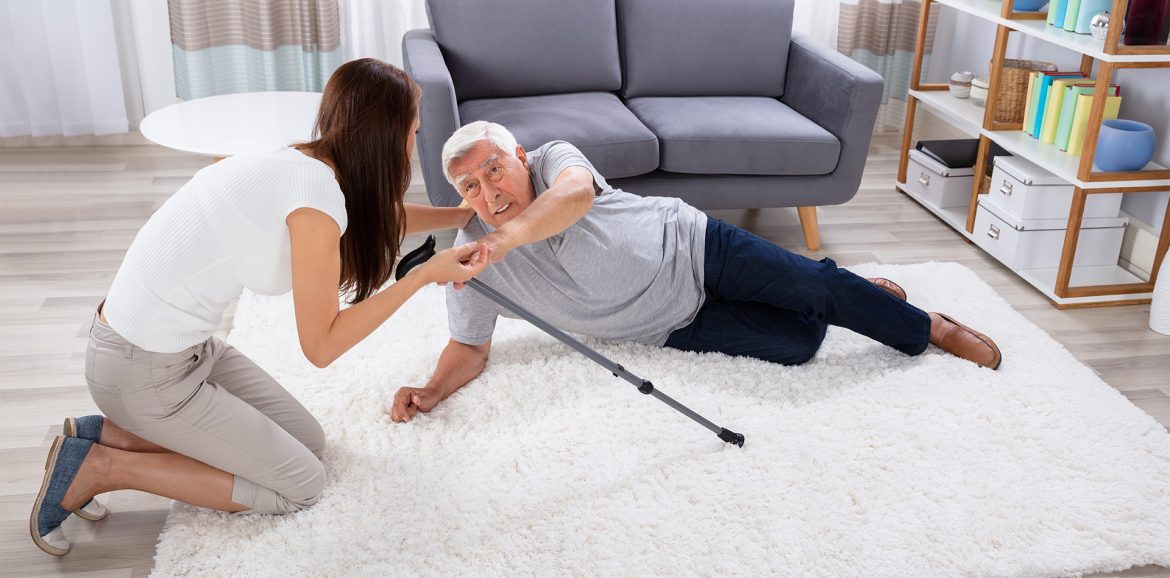Hearing loss is often thought of as a purely auditory problem. But did you know that poorer hearing can also affect your balance? Especially in the elderly, hearing loss can lead to an increased risk of falling. In this blog, we dive deeper into the relationship between hearing and balance, and why it is so important to identify and treat hearing loss early. Especially for the elderly, for whom a fall can have serious consequences, awareness is essential.
The role of hearing in our balance system
Our balance is regulated by a complex interplay of three systems: the visual system (eyes), the proprioceptive system (information from muscles and joints) and the vestibular system (balance organs in the inner ear). But what many people don’t know is that hearing also contributes indirectly to our balance.
Sounds give us information about our surroundings. Think of the sound of footsteps, an approaching cyclist or the rustling of the wind. This helps orient us in space. When your hearing declines, you miss these extra signals. This can cause you to feel less confident, or more quickly off balance in unpredictable situations.
Hearing loss and imbalance
In the elderly, hearing loss is often gradual. But as hearing continues to deteriorate, the pressure on the other balance systems increases. This can lead to:
- Dizziness or feeling uncertain when walking
- Moving more slowly or shuffling
- Problems with orientation, especially in crowded or unfamiliar environments
- Greater reliance on visual input, increasing balance problems in the dark
Studies show that elderly people with hearing loss are at increased risk for falls. Some studies have even found a doubling of fall risk in people with moderate to severe hearing loss.
Falls in the elderly: the consequences
A fall is never pleasant, but in the elderly, the consequences can be severe:
- Bone fractures, particularly hip fractures
- Loss of independence
- Long-term rehabilitation or hospitalization
- Psychological consequences such as fear of falling and social isolation
Prevention of falls is therefore an important part of elder care. Recognizing and addressing hearing loss plays a larger role in this than is often thought.
Why is hearing loss often overlooked?
Many elderly people get used to their impaired hearing. They compensate by lip-reading, talking louder or avoiding situations with lots of background noise. Because hearing loss often develops gradually, it is sometimes not noticed until it is already advanced.
In addition, there is still some reluctance when it comes to wearing hearing aids. Elderly people are sometimes embarrassed or think hearing aids are complicated to use. But modern hearing aids are discreet, easy to use and can contribute a lot to safety and quality of life.
What can you do to reduce the risk?
1. Get your hearing tested regularly
A hearing test is quick and painless. Many hearing specialists offer free hearing tests. Especially if you find that you have trouble following conversations or often have to ask people to repeat something, it’s time for action.
2. Wear a hearing aid if necessary
Hearing aids not only improve your communication, they also help you orient yourself better in your surroundings. You hear again where sounds are coming from, and that gives you peace and confidence.
3. Provide good lighting and safe walking routes in the home
Because people with hearing loss often rely more on visual information, good lighting is important. Remove loose rugs and provide adequate supports, such as stair railings.
4. Combine with balance training
Physical therapists can help with balance exercises. Yoga or tai chi are also effective ways to train balance and body awareness.
5. Consider tools
Sometimes small modifications, such as a walker or non-slip soles, can help reduce fall hazards. Technical aids such as fall-detection watches also provide additional safety.
The role of the audiologist
A good audiologist looks beyond hearing loss. At Horend Goed, for example, we take the time for a full conversation about your lifestyle, concerns and wishes. We think along with you about hearing solutions that fit your situation and comfort level. We also take factors such as balance and mobility into account.
We can provide hearing aids with additional features that enhance your safety, such as directionality, ambient noise optimization and even fall detection (in combination with apps or accessories).
Summary
Hearing loss is more than just not being able to hear well. Especially in the elderly, it affects self-confidence, social interaction and balance. The increased risk of falling makes it all the more important to identify and address hearing problems in a timely manner.
Whether you have mild hearing problems or have been in doubt about a hearing aid for some time: know that good hearing care also contributes to your physical safety. And that’s perhaps the most important reason to make an appointment today.
At Horend Goed, we’re here for you. Personal, professional and without fuss. Because your safety and well-being are our priority.








